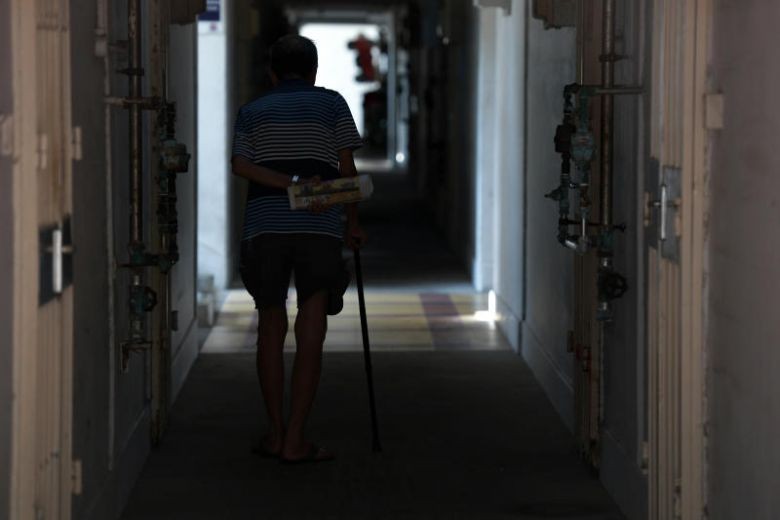Number of suicides committed by elderly hits record high as Singapore population ages

SINGAPORE- The number of elderly people taking their own lives reached a record high last year.
Some 129 people aged 60 and over committed suicide, despite the total number of suicides declining in the same year.
A total of 361 suicides were reported last year, 15 per cent fewer than the 429 in 2016.
Suicide prevention agency Samaritans of Singapore (SOS) provided a breakdown of the annual statistics released earlier by the Immigration and Checkpoints Authority.
The number of people taking their own lives dropped across all age groups, except the elderly which rose to the highest number since suicide numbers were tracked in 1991.
Ms Christine Wong, executive director of SOS, said: "It is very worrying that many elderly are turning to suicide as the only choice to end their pain and struggles, when they should be enjoying their lustre of the golden years.
"Suicide is preventable. Most importantly, suicidal people do not want to die. They want to live so desperately, but they can't seem to find a way to. They feel like they have exhausted all their options and the pain they are experiencing is well beyond them.
"With the elderly population in Singapore increasing steadily, suicides in this population may be expected to continue rising."
Usage patterns of SOS' 24-hour hotline showed that calls made by elderly people dropped by 18 per cent from 6,904 calls in 2016 to 5,652 calls last year.
Ms Wong called it a "concern", adding: "We need to find out the barriers that prevent them from getting through to SOS, and if they know where and what are the other available resources to seek help."
A spokesperson for Fei Yue Community Services said that most elderly people may not know who to turn to help or how to do so, either out of ignorance or reluctance.
"Those who are aged and sick, have little or no family or dependants help and are socially isolated may be more susceptible," said a spokesperson.
"Most would not want to be a burden to others or would not have the means to look after themselves in their healthcare needs."
Coupled with the ageing population, there are just fewer people of working age to support a growing pool of elderly, which may increase the strain on families, among other woes.
She added that most adult children also live busy lives and may not be able to give as much attention to parents as the elderly need or expect.
"Elder isolation is something we need to address in order to tackle elder suicide," she said. "Living with another person does not necessarily mean one does not become lonely or isolated. Interaction and emotional support are key."
The role of the community and the elderly's social support group is important, experts say. Better public education will help, said Ms Wang, adding that one way is to train volunteers who befriend the elderly to recognise signs of depression and suicide risk and to establish channels to flag people at risk to professionals.
Primary care doctors also have an important role, said Ms Wang, adding that physicians, social workers and counsellors of eldercare services should make it a point to look out for signs of emotional wellness and distress and to use standard assessment scales to identify risks and activate safety plans.
"Suicide is like an extreme situation when people want to put an end to their continuous pain and feelings of overwhelming helplessness," said Ms Wang. "If steps were taken early to manage seemingly insurmountable feelings and problems, suicide may not occur."
If you or someone you know is having suicidal thoughts or are in emotional distress, call SOS' 24-hour hotline on 1800-221-4444.
This article was first published in The Straits Times. Permission required for reproduction.